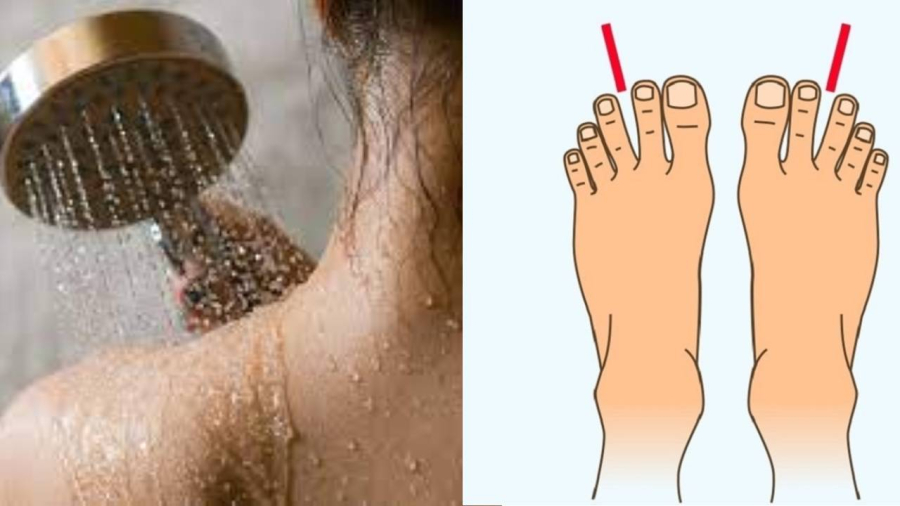According to dermatologists and family physicians at George Washington University (GW) – USA, while bathing, many of us often overlook 3 body parts or areas. Interestingly, these areas can harbor different types of bacteria, including some that can negatively impact health.
In a study published in September in the journal Frontiers in Microbiology, Professor, Dr. Keith Crandall, the author of the study, and his colleagues explained that when these moist, sweaty areas on the body are not cleaned regularly, they create opportunities for certain bacteria to grow and potentially cause skin conditions such as eczema or acne.
3 body areas that need attention during bathing but are often overlooked
– Behind the ear
Anywhere with folds or creases, such as behind the ear, can hold onto oil, dead skin cells, and dirt that can irritate the skin. The accumulation of these substances can lead to skin inflammation. “Any skin infection can lead to cracks in the natural protective barrier of the skin, creating conditions for bacteria to invade and cause infection,” doctors explain.
Similarly, if you don’t wash behind your ears regularly, you may notice that the skin in that area becomes sensitive or irritated, and even develops eczema. Lastly, there’s odor. You have sweat glands behind your ears, so sweat will be secreted. Sweat when in contact with bacteria can start to smell over time.

– Between the toes
Although most water and soap from the showerhead can flow across your feet and toes before bathing, this is not enough to clean the areas between your toes.
Since the skin between the toes does not produce as much oil as other areas on the body, the consequences of not cleaning here can lead to toenail fungus.
Doctors also point out that our feet tend to sweat a lot, and the sweat can accumulate due to wearing shoes, which can lead to the growth of bacteria and fungi. You can get athlete’s foot – a common skin fungal infection that often occurs between the toes – with symptoms such as itching, peeling, scaling, blisters, or cracked skin…
Failure to regularly clean the toe crevices can also lead to bacterial or tissue inflammation, a bacterial skin infection that can spread to the feet.
– Groin area
In addition to being dark and moist, the groin area has many folds of skin, creating an ideal environment for the accumulation of dead skin cells, sweat, and other microorganisms such as bacteria and fungi. This not only causes odor but can also make the skin in that area prone to infection – most commonly bacterial folliculitis and candidiasis.
According to Laura Purdy, a family physician based in Miami, who was not involved in the GW study, cleaning all areas of skin on the body during bathing is essential, especially for “hard-to-reach” and “easily forgotten” areas such as behind the ears, between the toes, and the groin area.
She explains, “Bathing helps us remove dirt, odor, and allergens that accumulate on the skin throughout the day. But bathing also removes dead skin cells, sweat, and natural oils from your body’s skin. Your skin can also harbor some bacteria, viruses, or fungi, so it’s important to clean these areas for overall body cleanliness.”
In addition, the time of bathing also affects health. Here are 5 times you should not bathe:
When hungry and after eating
After eating, the body needs to focus blood flow to the digestive organs. At this time, the digestive system begins to work vigorously to digest food. If you bathe at this time, blood flow will circulate throughout the body more as blood vessels heat up and expand, which can affect the digestion process, such as slowing down or interrupting it and causing indigestion.
When hungry, you should also not take a bath. At this time, the glucose level in the blood is low. Bathing can deplete your body’s energy and lower blood sugar levels even further, causing inadequate blood supply to the brain, leading to dizziness, and even fainting.
Immediately after exercising
After exercising, the heart beats faster to supply oxygen to the muscles. If you bathe immediately, blood will circulate throughout the body, leading to local blood and oxygen deficiency in the heart and brain. You may feel dizzy, nauseous, tired, faint, and even stroke, which can be life-threatening. Therefore, after physical activity, you need time to rest instead of rushing to take a bath.
When the body is tired
A tired body will have difficulty regulating body temperature, easily catching a cold, feeling dizzy, or having a stroke. It is best to rest for a while for the body to recover.
After sun exposure
You may want to bathe immediately after coming indoors from the sun as your body is generating heat, sweating, and feeling hot. At this time, bathing immediately can cause clogged pores, preventing sweat from escaping, reducing body temperature, and making you susceptible to cold.
Night bathing
The temperature drops at night, and bathing at this time, especially bathing with cold water, can cause the blood vessels to constrict. Blood circulation becomes difficult, leading to headaches, body aches, stroke, or even a stroke or brain hemorrhage.

































